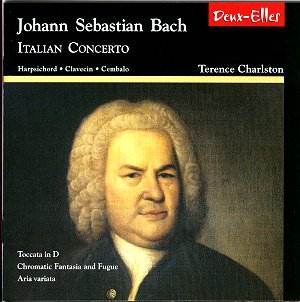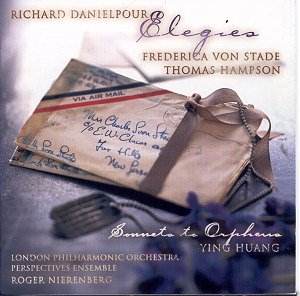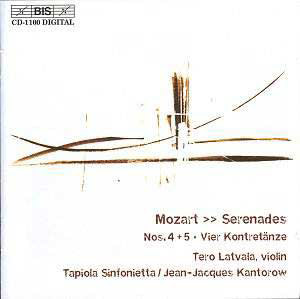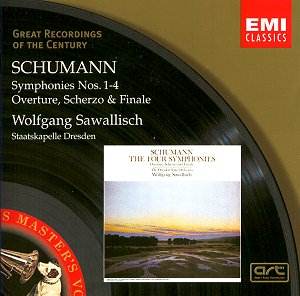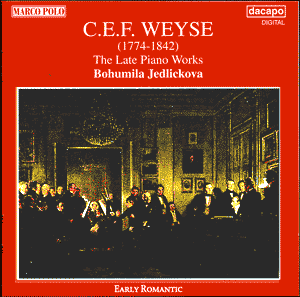 Composer: Christoph Ernst Friedrich Weyse
Composer: Christoph Ernst Friedrich Weyse
Works: 8 Etudes Op.51 (1831), 4 Etudes Op.60 (1837), Allegro di bravura in A Minor Op.50 (1831)
Performers: Bohumila Jedlickova (piano)
Recording: 1993, Copenhagen, Denmark
Label: Marco Polo/Dacapo DCCD 9307 [CD1 50.23]
Christoph Ernst Friedrich Weyse, a pivotal figure in early Danish music, is perhaps best remembered for his vocal compositions, yet his late piano works reveal a fascinating evolution in his artistic development. Born in 1774, Weyse’s formative years were steeped in the classical traditions of Mozart and Haydn. His return to the piano late in life, stimulated by the visit of the virtuoso Ignaz Moscheles, marked a significant departure from his earlier conservatism. The pieces in this collection—specifically the 8 Etudes Op.51 and 4 Etudes Op.60—serve as a bridge between classical and romantic idioms, showcasing a composer whose style became increasingly nuanced and chromatic in his twilight years.
Bohumila Jedlickova’s performance in this re-issue captures the essence of Weyse’s late style, characterized by a blend of technical demands and lyrical expression. Her interpretation of the Allegro con brio in E major from Op.60 reflects a vibrant vitality and a keen understanding of the music’s underlying structure. The work’s rhythmic drive, coupled with its intricate melodic lines, is executed with precision and flair, demonstrating Jedlickova’s agility and command over the keyboard. In the Allegretto in E Minor, Jedlickova brings forth a more introspective quality, allowing the music’s emotional depth to resonate. The contrasts in dynamics and tempo are handled deftly, creating an engaging narrative that draws the listener in.
Technically, Jedlickova meets the challenges posed by these etudes with remarkable prowess. The chromatic scales and rapid passages—often hallmarks of Weyse’s late style—are navigated with clarity and purpose. The recording quality deserves particular mention; the acoustics of the Danish venue enhance the piano’s tonal richness, while the engineering captures the delicate nuances of Jedlickova’s playing. The balance between the piano and the recorded space allows for an immersive listening experience, making the subtleties of articulation and phrasing evident.
While comparisons to other recordings of Weyse’s works are limited due to his relative obscurity, Jedlickova’s interpretation stands out for its emotional weight and technical flair. Other pianists may approach these pieces with a more historical perspective, yet Jedlickova’s modern sensibility brings a fresh vibrancy that feels both authentic and innovative. Specific moments, such as the tremolo effects taught to Weyse by Moscheles, are vividly realized, enhancing the expressiveness of the Allegro di bravura in A minor.
Weyse’s late piano works, particularly in this interpretation, reveal a composer who, while rooted in the classical tradition, embraced the burgeoning romantic language with a mature perspective. Jedlickova’s performance offers a compelling journey through these etudes, marrying technical brilliance with interpretative insight. This recording not only enriches our understanding of Weyse’s contribution to piano literature but also invites a reevaluation of his legacy within the broader context of early 19th-century music. The combination of historical context, technical execution, and interpretative depth makes this a significant addition to the recorded repertoire.
